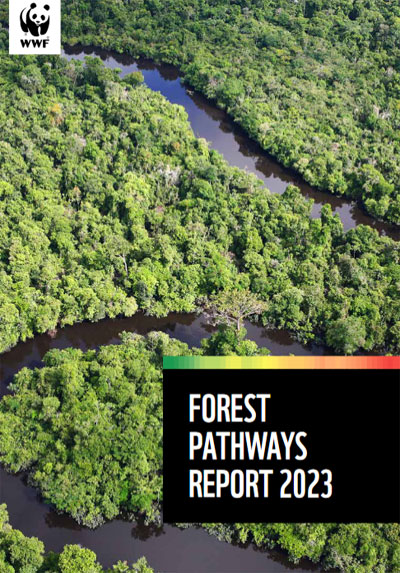Forest Pathways Report 2023
The world is off track to protect and restore forests by 2030, according to the new Forest Pathways 2023 report from WWF and the Forest Declaration Assessment. WWF’s report comes just two years on from pledges made at the UN Climate Change Conference, COP26, by over 130 countries representing 85% of the world’s forests to halt and reverse deforestation by 2030.
The analysis shows that the speed and intensity with which forests around the world are still being destroyed, and the lack of progress on commitments, leaves the world clearly in danger of missing vital targets.
The Assessment shows that in 2022, global deforestation reached 6.6 million hectares, with primary tropical forest loss at 4.1 million hectares. An alarming 96% of this takes place in tropical regions. Tropical Asia is the only region that is close to the pathway for achieving zero gross deforestation.
WWF warns that the world is “failing our forests” and sets out an action plan to get the world back on track to reduce deforestation and meet global goals.
“It is impossible to reverse nature loss, address the climate crisis and develop sustainable economies without forests,” says WWF Global Forests Lead, Fran Price.
“Since the global pledge to end deforestation by 2030 was made, an area of tropical forest the size of Denmark has been lost. We are at a critical juncture. Governments and businesses have a huge responsibility to set us on the right pathway.”
If urgent action is not taken, tropical forests will begin to act as a carbon source, not a sink, under the pressures of a warming, drying and increasingly extreme climate.
Widespread and increasing deforestation and degradation in the planet’s three largest tropical forest basins – the Amazon, Congo and the forests of Asia-Pacific, stretching across Southeast Asia and the Southwest Pacific – could deliver a global climate catastrophe.
Globally, at least 100 times more public funding goes to environmentally harmful subsidies than to finance forests.
Only US $2.2 billion in public funds are channeled to forests every year – a negligible fraction compared to other global investments.
Indigenous Peoples and local communities receive a small fraction of the finance they need to secure their rights and effectively manage their territories, even though where tropical forests are under their stewardship, forests are better protected and deforestation and degradation are lower.

In addition to calling for financial promises to be met, the WWF Forest Pathways 2023 report sets out a blueprint to save forests by 2030, with essential measures, including:
- Ending forest-harming investments and subsidies such as agricultural subsidies responsible for the loss of 2.2 million hectares of forest per year
- Reforming the rules of global trade that harm forests, cutting deforesting commodities out of global supply chains, and removing barriers to forest-friendly goods
- Accelerating the recognition of land rights to Indigenous peoples
- Making the shift towards nature-based economies
WWF urges governments and businesses to heed the warnings from the new data and take urgent action to protect and restore forests.
- Find out more: panda.org/forests
- WWF Forest Pathways Report 2023 PDF 10.28 MB
- WWF Forest Pathways Report 2023 Executive Summary and Recommendations PDF 1.52 MB








